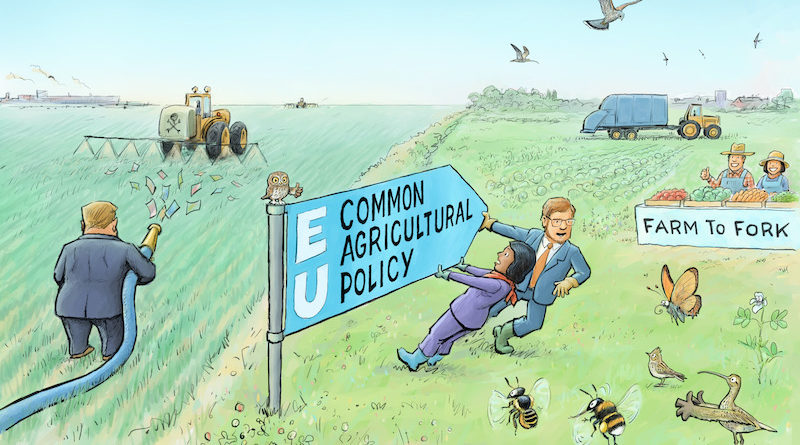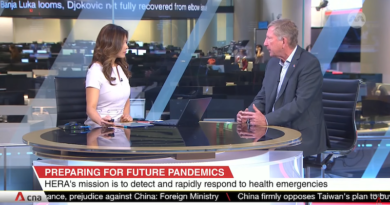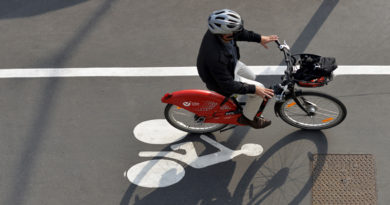
PLANETARY DIETS: the Power is on our plates, and on our food policies!
Global Food Lead Scientist for WWF /
Senior Policy Officer, Agriculture and Food, WWF-European Policy Office
We all want to make the world a better place. But what power does one person actually have? Is it really possible to stop deforestation in the Amazon? Or help keep the polar ice caps from melting? Or save tigers and orangutans from going extinct? In short, yes! Wisely choosing the food that we put on our plates may be the most powerful action that each of us can take to make the world a better place. And accompanying individual actions with a supportive suite of food-related policies can massively scale up the impact.
Just how is food connected to deforestation, climate change and wildlife? Many studies, including the 2020 Living Planet Report, have shown that how we produce and consume food is one of the biggest drivers of our planet’s deteriorating health. There is good news though — the main conclusions from this growing body of research are that:
1) we still have time to reverse course and restore nature;
2) there are win-win solutions available today that are good for people and planet; and
3) what we eat matters.
In fact, what we eat matters a lot.
Our food systems have caused 70% of biodiversity loss on land and 50% in water; they’re responsible for around 25% of all greenhouse gas emissions; and they’ve caused 80% of global deforestation.
Our dietary choices aren’t just damaging the planet, they are also damaging our own health. Unhealthy diets now pose a greater risk of morbidity and mortality than unsafe sex and alcohol, drug and tobacco use combined.
The solution is right on our plates.
In Bending the Curve: The Restorative Power of Planet-Based Diets, launched in October 2020, we demonstrate that planet-based diets (high in human health benefits and low in environmental impact) not only reduce environmental damage and harm to our health, they can also be restorative — a true “win-win”. These diverse and flexible dietary patterns can help restore nature by cutting greenhouse gas emissions, halting deforestation, and saving wildlife.
Some people may argue that warnings of the catastrophic impacts of the destruction of nature are alarmist: the human population has never been healthier, and food has never been more plentiful; the human species has always advanced by utilising natural resources and it has in fact been positive and necessary for our species to thrive.
But this argument is inherently flawed. Although agricultural revolutions of the past have enabled us to feed more people, and the rapid productivity gains since the “green revolution” have spurred improvements in human health, these gains have come at the expense of the environment.
Current global food production depends on practices that cross planetary boundaries, taking us into dangerous territory and an uncertain future.
So far, increased food productivity has been able to stay ahead of the effects of a deteriorating environment — but this time lag has masked the underlying symptoms of a planet in crisis, and tricked us into believing that exploitation of the Earth’s resources is without reckoning. Far from being alarmist, there is now overwhelming scientific evidence that our past actions are catching up with us.
Humanity has never before needed to change the food system so radically at this scale or speed. With this new study, accompanied by a new Impact & Action Calculator, we hope to help remove some of the barriers that in the past have prevented action being taken on the ground, from individuals to policymakers. We are convinced that to accelerate dietary shifts a supportive policy framework can play a crucial role, especially by modifying our food environments, thus making the healthy sustainable choice the easiest option for everyone.
The past year has been devastating in many ways — from the Covid 19 pandemic to intense fires raging from the Arctic to Amazon. But it has also shown us that a new and better world is possible.
The EU’s Farm to Fork Strategy has rightfully underlined the centrality of an integrated food policy to achieve the desired change.
However, it has only timidly addressed the need to change food consumption patterns in Europe, and more initiatives than those announced in the Farm to Fork Strategy will need to be undertaken in the coming years: from improving National Dietary Guidelines to setting minimum VAT levels on fruits and vegetables.
The evidence is out there. The time for talk is over. It’s now time to roll up our sleeves and get to work.

Scientist for WWF




